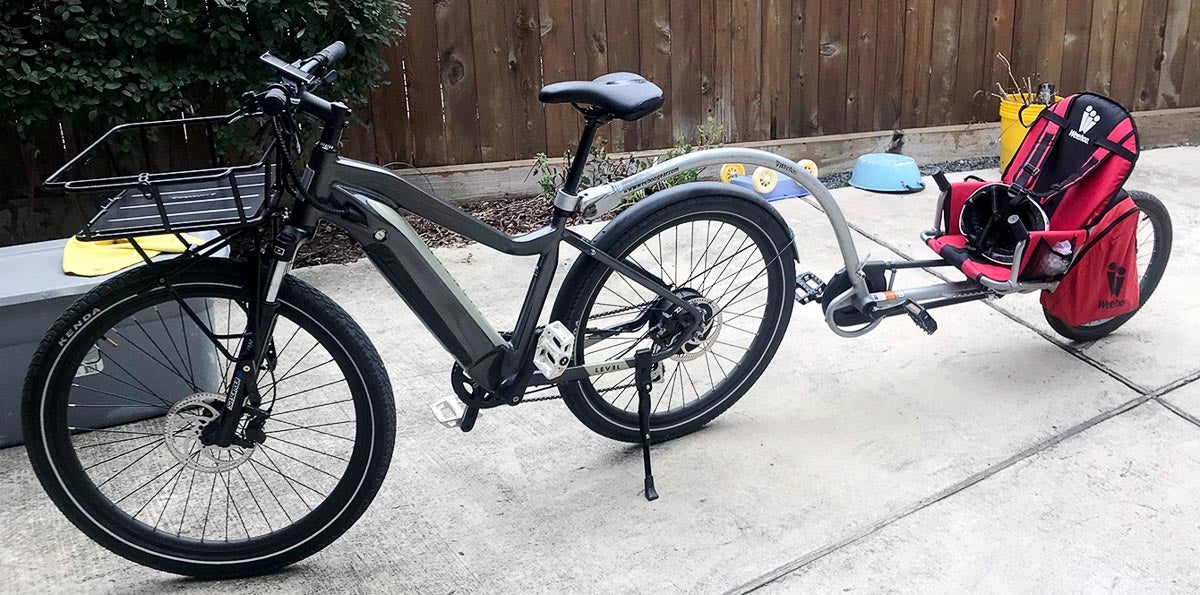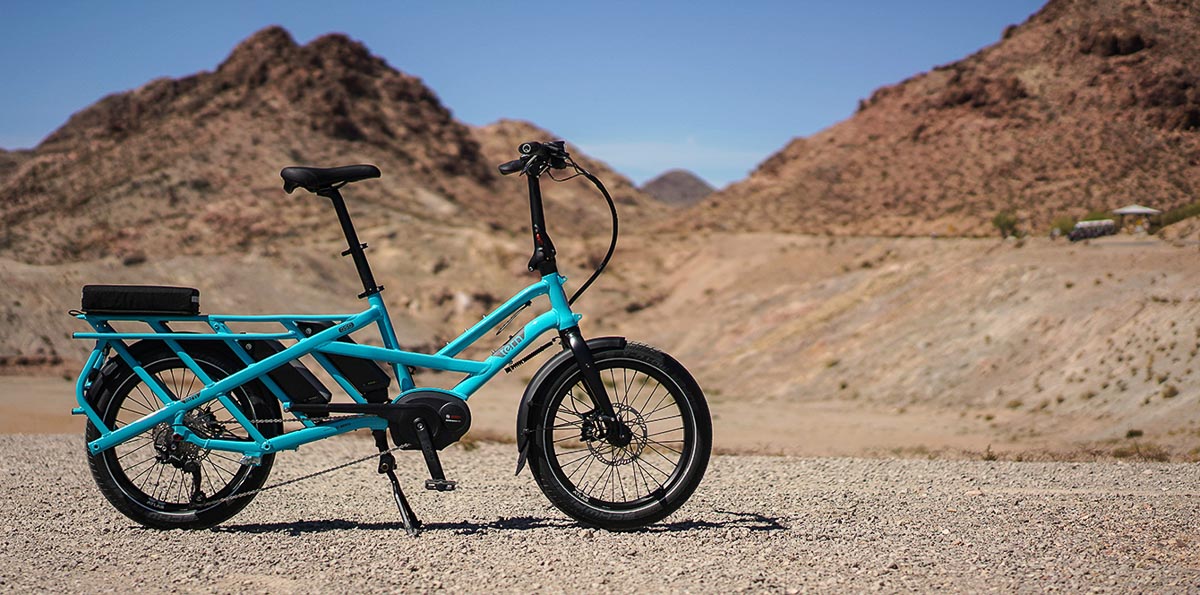As people started to work from home, eat at home and entertain themselves at home, they quickly began looking for a way out — of the house. Many discovered — or rediscovered — the restorative powers of cooking, taking a walk, playing board games, working jigsaw puzzles and, of course, riding a bike.
Since the beginning of the pandemic, which was followed soon after by stay-at-home orders in Houston and Harris County, business has been booming for local bike shops and online retailers. Driven by customers inspired to explore less-congested roadways with family or other members of their social bubbles, sales of bicycles and bike accessories in the U.S. hit $1 billion in April — a 75% increase over 2019. “Bicycles suitable for family use, neighborhood riding, and those with more approachable price-points showed the strongest year-over-year sales gains,” according to market research company the NPD Group.
What may have seemed like just a flirtation or a short fling has persisted, taking root and growing into a months-long romance with cycling. Bicycling activity has increased dramatically in Houston, Dallas and San Antonio, and it’s doubled in other metros not known as bike cities. In May, the number of cycling trips in Houston was up 138% compared to the year before, according to data from activity tracking app Strava. Houston’s BCycle bike share program, which has seen record rentals month after month since the beginning of the outbreak, reported 34,000 trips logged in August.
After the pandemic, let’s keep riding
Can Houston and other cities take advantage of this newfound interest in cycling by encouraging it, so it continues to grow, even after work from home has ended? What about creating a rebate program for electric bikes similar to those offered by the federal and some state governments for electric vehicles?
It could happen in New York, where State Assembly Member Robert Carroll introduced a bill earlier this month that would extend the state’s electric car rebate program to e-bikes. Carroll detailed his bill in an opinion piece he co-wrote for Streetsblog NYC: “The current Drive Clean program offers a direct, point-of-sale rebate of up to $2,000 to buyers of electric cars. A10974 would allow the state to offer a similar rebate for the purchase of e-bikes, covering 50 percent of the purchase price with a maximum rebate amount of $1,100.”
Electric bikes enable riders of different fitness levels to ride farther and more often than traditional bikes. By making it easier and more enjoyable to bike, people are more likely to choose biking over driving.
Almost 65% of North American e-bike owners said that replacing car trips was a main motivation for buying an e-bike, according to a survey cited by Carroll.

Incentives to bike to work
For years, I’ve commuted to work by bike as much as possible. When I lived in the Heights, just a few blocks south of the North Loop, I biked to where I worked downtown. Then, after changing jobs, I biked to my office in the Med Center. After moving to the East End, I continued commuting to the Med Center and then to the Rice campus.
Typically, a morning bike commute — even one as relatively short as mine — includes mopping sweat while hurriedly changing clothes and applying a few swipes of deodorant. (There are, of course, products like disposable wipes that can be used in a pinch, just be sure to avoid their troubling downsides by not flushing them.) I’ve been fortunate to work for employers who have made shower facilities available for bike commuters; however, there’s not always time after riding to work, to shower, change and make it from where the showers are located to my office in time for the start of the workday. (Now, that’s on me, but still.)
But I had a plan to skirt all of that fuss: I would buy an electric bike. And, a little more than six months ago, the week before the Kinder Institute closed its offices at Rice and transitioned the staff to work from home, my e-bike arrived.
An affordable and effective alternative
E-bikes vary widely in price, from around $1,000 to as much as $13,000 or more, and power levels of motors and battery ranges (typically 30–50 miles) vary as well. Options range from basic commuters and city bikes, to utilitarian cargo bikes with 450-pound payloads, to high-end road and mountain bikes.
There are plenty of sub-$2,000 e-bikes on the market. The one I bought was around $1,600, will go as fast as 28 miles per hour on pedal assist, and has a battery that averages 40 miles per charge. By bike, my commute is just under 6 miles each way, a distance that, on the e-bike, I can manage without breaking a sweat or needing to shower and change clothes — even when pulling a kindergartner in a bike trailer.
Many live close enough to jobs to bike
Roughly one-third — 351,000 — of Houston residents live less than 20 minutes from work, according to American Community Survey 1-year Estimates for 2019. And of those, 77.6% drive to work alone. By car, my commute is 15–18 minutes; and it takes approximately 30 minutes to bike the 6 miles. That’s a distance easily covered on an electric bike.
A lot of investment has been made in designing this city, which has more than 16,000 miles of city streets and over 4,000 miles of highways, around the automobile. And at almost 640 square miles, it’s just too big to suggest that a significant portion of the population could — or would — ride a bike to work. It’s simply not feasible for many of the 770,000 or so Houstonians who don’t live close to their jobs and spend between 20 and 60 minutes driving to work.
But, that doesn’t mean there aren’t other, smaller ways to incrementally reduce the amount of driving we do, such as walking or biking for short errands, coffee runs, etc., as much as possible. Nationwide, 76.8% of car trips are 10 miles or less, according to the Federal Highway Administration’s National Household Travel Survey. The City of Houston estimates that each day, nearly 4 million of the trips Houstonians take are less than two miles from home, and of these, only 1–3% are made by biking or walking.
Emissions and climate change
Transportation accounts for 33% of greenhouse gas emissions in Texas, which leads the nation in annual metric tons of CO2 emitted by driving — at 232 million metric tons.
Houston produces 33.4 million metric tons of emissions a year (stationary, transportation and waste combined), with 48.3% (16.1 million metric tons) of that coming from transportation — and, of that, 15.9 million metric tons is attributable to passenger vehicles. In short, 47.7% of total greenhouse gas emissions in Houston comes from the cars, trucks and SUVs we drive.
More e-bikes in the hands of Houstonians could help in hitting the City of Houston’s goal of achieving carbon neutrality in the next 30 years. A 20% reduction in the per-capita vehicle miles traveled by 2050 is just one of the targets included in the city’s Climate Action Plan to meet that goal.
According to the plan:
“To reduce vehicle miles traveled (VMT) per capita, we, as a community, must do everything we can to fund and promote the use of multi-modal transportation, including transit, biking, and walking. … Complementary initiatives are starting to guide the region toward more mobility choices, sustainable land use planning, and active living opportunities, leading ultimately to a healthier and lower-emissions Houston.”
More e-bikes in the hands of Houstonians can help achieve all of the above as well.
The high cost of transportation in Houston
Houstonians are paying a high price for their vehicles in more ways than climate change and warming the atmosphere. A Kinder Institute study examining where affordable housing and affordable transportation are in close proximity in Houston shows that the average Houston household spends 25% of its income on housing and 20% on transportation. That cost goes up for moderate-income households — those making between $61,050 and $91,600 for a family of four. On average, these households spend 31% of their income on housing and 22% on transportation. The report, which was co-authored by researchers from the Kinder Institute and LINK Houston, defines affordable transportation as “transportation of any type that consumes less than 15% of household income — less than $763 per month for a family of four in Houston.”
A study from the Citizens Budget Commission of housing and transportation costs as a percentage of income in 20 of the largest U.S. cities found that Houston households spent an average of $1,152 a month on transportation in 2016.
COVID-19 currently is changing that — transportation costs in the Houston metro area are around 45% less in September compared to January of this year — but the change is only temporary.
Calculators available online will estimate the fiscal cost of your car commute. My estimated cost to drive to work is $341.34 a month — $4,096 annually. I can greatly reduce that cost by biking to work several days a week and using a bike instead of driving when possible. That would shrink my personal carbon footprint as well.
Take a look at Houston’s climate action plan and the commitment to alternative energy is seen throughout:
“Electric vehicles are one of the most promising opportunities for Houston to lead in transportation emissions reductions. Electric vehicles could also save Houstonians money, as they have a lower cost of ownership compared to internal combustion vehicles.”
Electric bikes should be included in conversations about transitioning to electric vehicles. Those conversations should include ways to make it easier for those who can’t afford an electric vehicle to purchase an e-bike. They can help reduce congestion and emissions and can be affordable and practical alternatives to cars in Houston — even in the middle of August.

